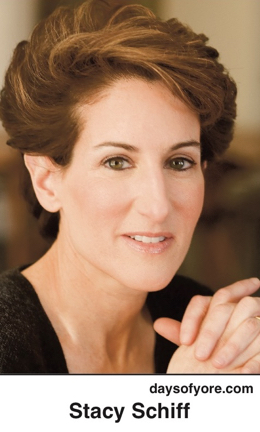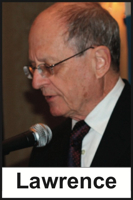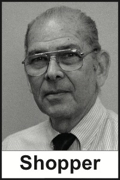Rascals case in brief
In the beginning, in 1989, more than 90 children at the Little Rascals Day Care Center in Edenton, North Carolina, accused a total of 20 adults with 429 instances of sexual abuse over a three-year period. It may have all begun with one parent’s complaint about punishment given her child.
Among the alleged perpetrators: the sheriff and mayor. But prosecutors would charge only Robin Byrum, Darlene Harris, Elizabeth “Betsy” Kelly, Robert “Bob” Kelly, Willard Scott Privott, Shelley Stone and Dawn Wilson – the Edenton 7.
Along with sodomy and beatings, allegations included a baby killed with a handgun, a child being hung upside down from a tree and being set on fire and countless other fantastic incidents involving spaceships, hot air balloons, pirate ships and trained sharks.
By the time prosecutors dropped the last charges in 1997, Little Rascals had become North Carolina’s longest and most costly criminal trial. Prosecutors kept defendants jailed in hopes at least one would turn against their supposed co-conspirators. Remarkably, none did. Another shameful record: Five defendants had to wait longer to face their accusers in court than anyone else in North Carolina history.
Between 1991 and 1997, Ofra Bikel produced three extraordinary episodes on the Little Rascals case for the PBS series “Frontline.” Although “Innocence Lost” did not deter prosecutors, it exposed their tactics and fostered nationwide skepticism and dismay.
With each passing year, the absurdity of the Little Rascals charges has become more obvious. But no admission of error has ever come from prosecutors, police, interviewers or parents. This site is devoted to the issues raised by this case.
On Facebook
Click for earlier Facebook posts archived on this site
Click to go to
Today’s random selection from the Little Rascals Day Care archives….
Click for earlier Facebook posts archived on this site
Click to go to
Today’s random selection from the Little Rascals Day Care archives….
Chandler’s imprisonment: cruel and unusual
April 28, 2014
Average number of months served by inmates in state prisons…
■ for sexual assault: 35
■ for homicide: 71
■ for rape: 65
Number of months served by Andrew Junior Chandler for an imaginary crime: 324.
It wasn’t just Edenton where lips were zipped
 Sept. 5, 2015
Sept. 5, 2015
“An 1895 reporter found (Salem) town residents reluctant to talk about the past.
“When they did, it was to impress upon him that they had not burned a single witch. Years later Arthur Miller met with the same silence while researching The Crucible. ‘You couldn’t get anyone to say anything about it,’ he complained of 1692….
“When (an archivist) began an excavation of the parsonage site in 1970, two elderly sisters waved fists at him from across the way…. ‘What are you bringing this up for?’ they demanded….”
– From “The Witches: Salem, 1692” by Stacy Schiff (due Oct. 27)
Schiff has a lengthy related piece in the current New Yorker.
Anonymous sympathizer gave $750,000
Nov. 14, 2011
 Raymond Lawrence, then director of chaplains for Columbia Presbyterian Hospital in New York, attended Bob Kelly’s trial on several occasions and founded the Committee for Support of the Edenton Seven.
Raymond Lawrence, then director of chaplains for Columbia Presbyterian Hospital in New York, attended Bob Kelly’s trial on several occasions and founded the Committee for Support of the Edenton Seven.
This passage is excerpted from a memoir I asked him to write for littlerascalsdaycare.org:
“One Monday morning on arriving at my office I noted a special delivery overnight package in my mail pile. Just as I walked in, my secretary buzzed me to say I had a long distance call asking whether I had opened the package. I told her to get the number and I would call back.
“Instead, the caller said he would call back. I assumed it was the kind of crank call which often comes to chaplains.
“When I finally turned to the special delivery package, I found inside cashier’s checks made out to various defendants in an amount of about $450,000.
“Finally the donor called back, but he didn’t want his name disclosed to the secretary or anyone else. He felt the case was a witch hunt, and he was in solidarity with the accused. He was a businessman who had made a fortune in the emerging computer industry. A year later he gave another $300,000.
“When I flew to Ohio to meet him, he told me he had a terminal illness, and some years later he died. He was a humble, unassuming man. I was in awe of his sensitivity and generosity.”
Surviving tape undercuts officer’s testimony
 May 11, 2012
May 11, 2012
“One of the attorneys preparing the appeal brief for Mr. Kelly found a tape of an interview with a child that had been taped over with another interview, but retained the last five minutes. The attorney (described Brenda Toppin’s approach as) ‘not only suggestive, but coercive to the point of brutality. The child’s crying and pleas to stop are met only by Ms. Toppin’s promise to stop when the child said what she wanted to hear’….
“(This discovery) is especially shocking because Officer Toppin denied under oath that she was coercive, suggestive or leading in her interviews.”
– From “What I learned from the Edenton Little Rascals sex abuse trial” by
Moisy Shopper, M.D. (in the peer-reviewed journal Psychoanalytic Inquiry, 2009)











0 CommentsComment on Facebook